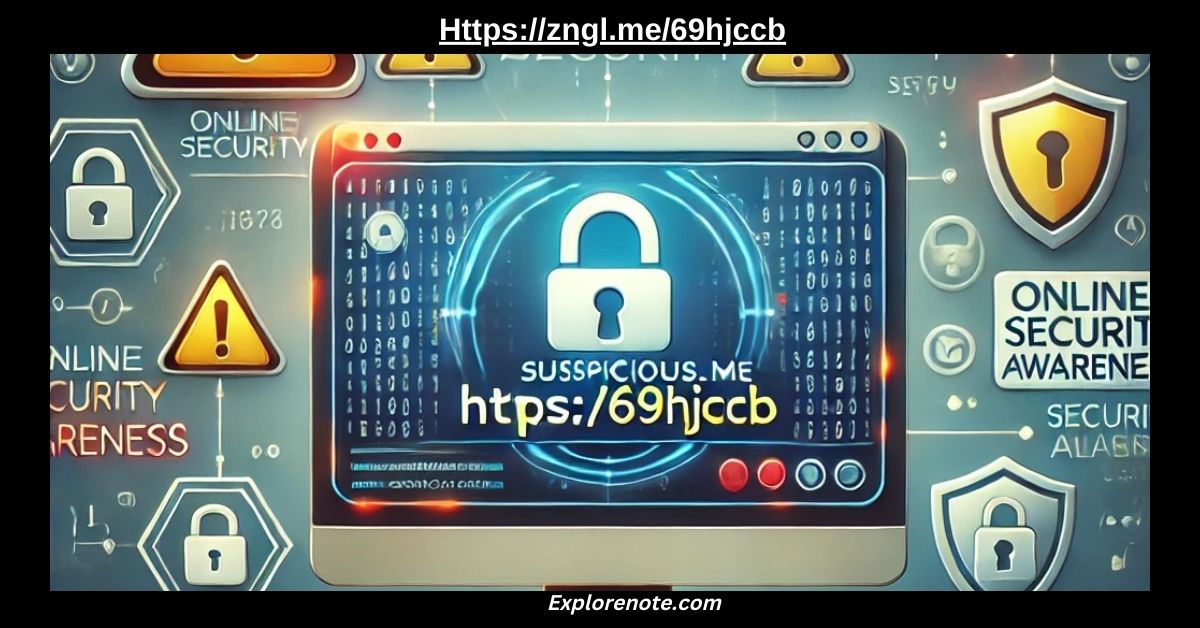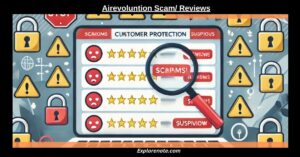The internet has revolutionized the way we connect, shop, and access information, but it has also brought risks, such as scam websites like “Https://zngl.me/69hjccb.”
These fraudulent platforms lure unsuspecting users into traps, leading to financial losses and data breaches.
In this comprehensive guide, we’ll explore everything you need to know about “Https://zngl.me/69hjccb,” from identifying its risks to practical tips on staying safe.
By understanding how scams like “Https://zngl.me/69hjccb” operate and learning effective prevention strategies, you can safeguard yourself and your loved ones in the ever-evolving digital landscape.
What Is “Https://zngl.me/69hjccb”?
Https://zngl.me/69hjccb is suspected to be a malicious website designed to deceive users into sharing sensitive personal information or financial details.
Often disguised as legitimate platforms, these websites exploit trust and curiosity through:
- Phishing Links: Disguising harmful links as reputable ones.
- False Promises: Offering fake discounts, job offers, or giveaways.
- Urgency Tactics: Pressuring visitors to act quickly without thinking critically.
While specific details about “Https://zngl.me/69hjccb” may not always be readily available, it reflects a growing trend of scam sites that mimic trusted brands or services.
How to Identify Scam Websites Like “Https://zngl.me/69hjccb”
Knowing the warning signs of scam websites is the first step in protecting yourself. Here are some red flags to watch out for:
Suspicious URLs
Fraudulent websites often use shortened URLs, like “Https://zngl.me/69hjccb,” or add minor variations to reputable domain names. Look for strange spellings or extra numbers/letters in the address.
Unrealistic Offers
If an offer seems too good to be true—such as a product priced significantly below market value—it probably is. Scammers use enticing deals to attract victims.
Lack of Contact Information
Legitimate businesses provide clear contact details. Scam websites either omit this information or include fake addresses and phone numbers.
Poor Website Design and Grammar
Many scam sites feature low-quality design, broken links, and poorly written content riddled with spelling mistakes.
No HTTPS Security
Always check for the padlock icon in the address bar, which indicates a secure connection (HTTPS). Fraudulent websites may lack this security measure or use deceptive tactics to fake it.
How Does “Https://zngl.me/69hjccb” Impact Victims?
The consequences of engaging with a scam website like “Https://zngl.me/69hjccb” can be severe:
Identity Theft:
Your personal data could be stolen and misused.
Financial Losses:
Credit card details may be exploited for unauthorized transactions.
Malware Infections:
Clicking on links can lead to harmful software being installed on your device.
Emotional Distress:
Victims often experience stress and anxiety after falling for scams.
Steps to Protect Yourself from Scam Websites
Verify the URL
Always double-check URLs before clicking on them. If you receive a link to “Https://zngl.me/69hjccb,” avoid clicking until you verify its legitimacy.
Use Antivirus Software
Install reputable antivirus and anti-malware programs to protect your devices from harmful websites.
Research the Website
Search for reviews or reports about the site. Platforms like Trustpilot or Better Business Bureau can provide valuable insights.
Avoid Sharing Sensitive Information
Never input personal or financial details unless you’re 100% sure the website is trustworthy.
Enable Two-Factor Authentication (2FA)
For added security, enable 2FA on your online accounts to prevent unauthorized access.
Report Suspicious Websites
If you suspect that “Https://zngl.me/69hjccb” or another site is a scam, report it to organizations like the Federal Trade Commission (FTC) or your local cybercrime authority.
Examples of Common Scams Linked to Websites Like “Https://zngl.me/69hjccb”
Phishing Emails
Fraudsters often send emails containing links to malicious sites like “Https://zngl.me/69hjccb.” These messages may appear to come from trusted sources.
Fake Online Stores
Some scam sites mimic popular e-commerce platforms, tricking users into making payments for non-existent products.
Tech Support Scams
Victims are directed to malicious websites under the guise of resolving technical issues.
Investment Scams
Links to websites like “Https://zngl.me/69hjccb” may claim to offer guaranteed returns on investments, which turn out to be false.
Real-Life Stories: Learning from Victims
Hearing about others’ experiences can help us avoid similar pitfalls. Here are some examples:
Sophia’s Mistake:
Sophia clicked on a link to “Https://zngl.me/69hjccb” from a text message claiming she’d won a prize.
She entered her credit card details, only to discover unauthorized charges on her account.
David’s Dilemma:
David received a job offer from a site linked to “Https://zngl.me/69hjccb.” After paying a “processing fee,” the company disappeared.
How to Recover If You’ve Been Scammed by “Https://zngl.me/69hjccb”
If you suspect you’ve fallen victim to a scam, take these steps immediately:
Notify Your Bank
Contact your bank or credit card provider to freeze your account and dispute unauthorized charges.
Change Your Passwords
Update your passwords on all online accounts to prevent further breaches.
Run a Security Scan
Use antivirus software to check your devices for malware or viruses.
Report the Scam
File a report with the FTC or other relevant authorities to help track and shut down fraudulent websites.
FAQs About “Https://zngl.me/69hjccb”
Q: Is “Https://zngl.me/69hjccb” a safe website?
No, it’s suspected to be a scam website that poses risks such as identity theft and financial fraud. Avoid engaging with it.
Q: How can I check if a website is legitimate?
Verify the URL, look for HTTPS security, read reviews, and research the website’s reputation before proceeding.
Q: What should I do if I accidentally clicked on a scam link?
Immediately disconnect from the internet, run a security scan on your device, and monitor your accounts for suspicious activity.
Q: Where can I report scam websites?
You can report them to the Federal Trade Commission (FTC) or your local cybercrime authority.
Q: Are shortened URLs always suspicious?
Not always, but you should be cautious. Use URL expanders to check where a shortened link leads before clicking.
Final Thoughts
Scam websites like “Https://zngl.me/69hjccb” are a growing threat in today’s digital age, but you can protect yourself with knowledge and vigilance.
By recognizing red flags, verifying websites, and reporting suspicious activities, you can stay one step ahead of cybercriminals.
Stay safe, stay informed, and help spread awareness to protect others from falling victim to scams like “Https://zngl.me/69hjccb.”
This guide equips you with all the tools you need to navigate the digital world safely. Always think twice before clicking, and when in doubt, consult trusted sources or professionals.
Latest posts:
- How MyBigCartelStore.com Impacts E-Commerce: Insights, Growth & Future Trends
- Unlocking Web Success_ Expert Insights from Bizwebgenius.com Barbara Miller on Analytics & Industry Benchmarks
- Kitnuz3745 Version PC_ Ultimate System Optimization Software for 2025
- Explore TechGroup21.com – Your Ultimate Hub for Programming, Tech News & Cybersecurity Trends
- The Fusion of Gambling and Social Media_ How thehake.com Social Media Strategy Drives Player Retention










